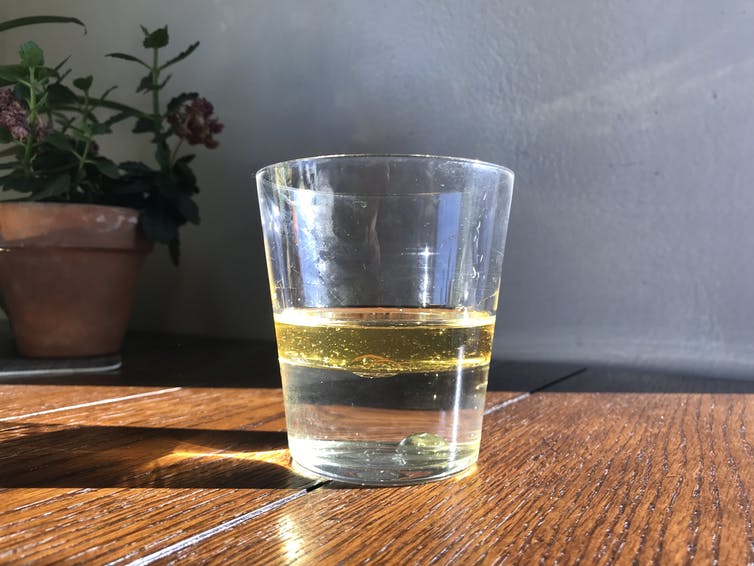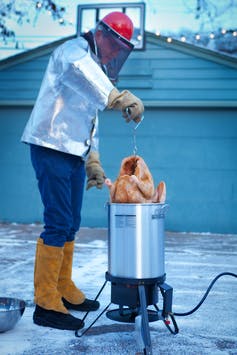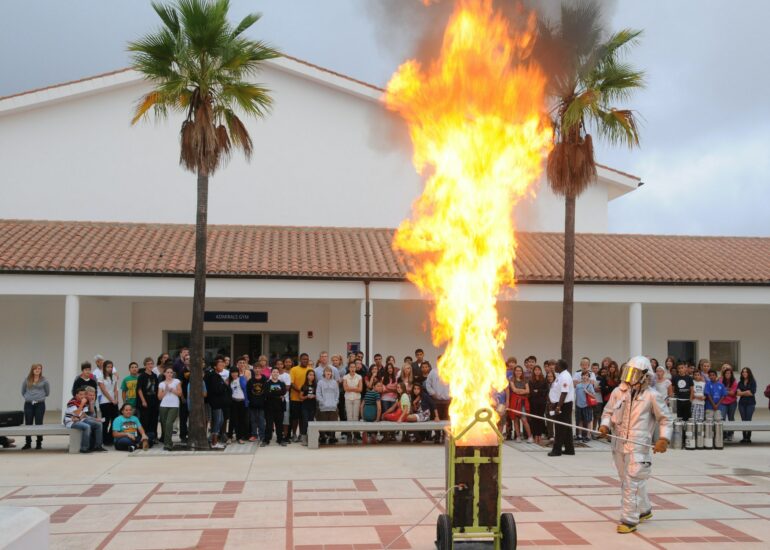Deep-frying a turkey is a great way to get a delicious, moist meal for Thanksgiving. But this method of cooking can be a very dangerous undertaking.
Every fall, millions of dollars of damage, trips to the ER and even deaths result from attempts to deep-fry turkeys. The vast majority of these accidents happen because people put frozen turkeys into boiling oil. If you are considering deep-frying this year, do not forget to thaw and dry your turkey before placing it in the pot. Failure to do so may lead to an explosive disaster.
What is so dangerous about putting even a partially frozen turkey in a deep-fryer?
I am a chemist who studies plant, fungal and animal compounds and have a love of food chemistry. The reason frozen turkeys explode, at its core, has to do with differences in density. There is a difference in density between oil and water and differences in the density of water between its solid, liquid and gas states. When these density differences interact in just the right way, you get an explosion.

If water and oil are in the same container, the denser water will sink to the bottom.
Daniel Merino, CC BY-ND
Understanding density
Density is how much an object weighs given a specific volume. For example, imagine you held an ice cube in one hand and a marshmallow in the other. While they are roughly the same size, the ice cube is heavier: It is more dense.
The first important density difference when it comes to frying is that water is more dense than oil. This has to do with how tightly the molecules of each substance pack together and how heavy the atoms are that make up each liquid.
Water molecules are small and pack tightly together. Oil molecules are much larger and don’t pack together as well by comparison. Additionally, water is composed of oxygen and hydrogen atoms, while oils are predominantly carbon and hydrogen. Oxygen is heavier than carbon. This means that, for example, one cup of water has more atoms than one cup of oil, and those individuals atoms are heavier. This is why oil floats on top of water. It is less dense.
While different materials have different densities, liquids, solids and gases of a single material can have different densities as well. You observe this every time you place an ice cube in a glass of water: The ice floats to the top because it is less dense than water.
When water absorbs heat, it changes to its gas phase, steam. Steam occupies 1,700 times the volume as the same number of liquid water molecules. You observe this effect when you boil water in a tea kettle. The force of expanding gas pushes steam out of the kettle through the whistle, causing the squealing noise.
Frozen turkeys are filled with water

Deep-frying a turkey can be safe as long as the turkey is thawed and dried.
YinYang/E+ via Getty Images
Frozen turkeys – or any kind of frozen meats, for that matter – contain a lot of ice. Raw…
